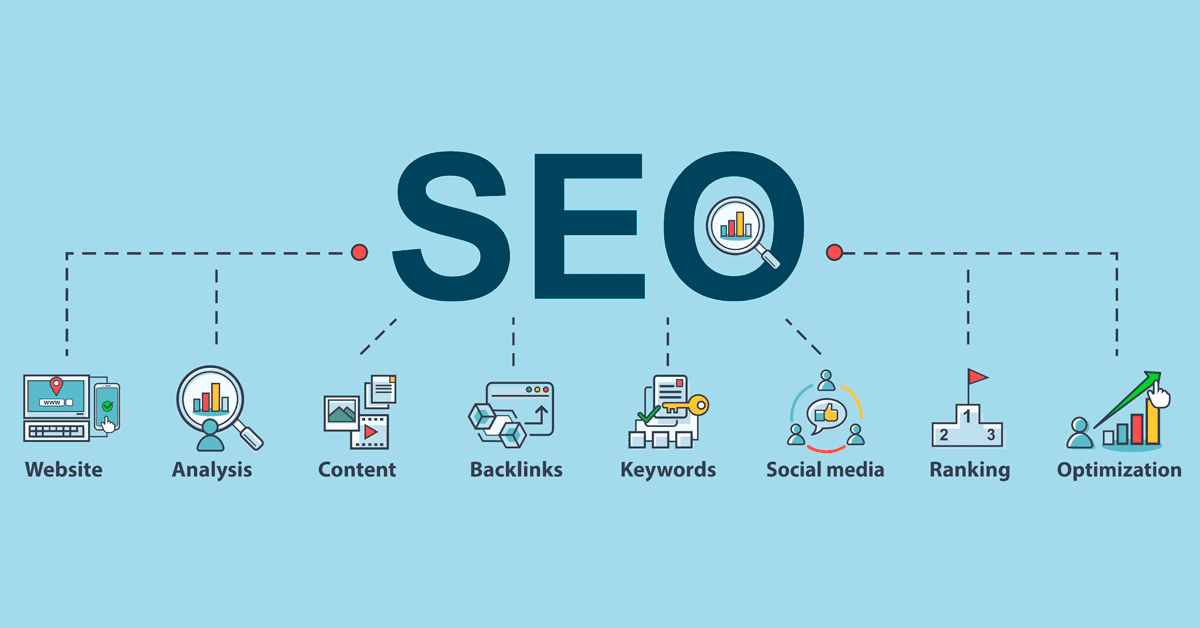

In the rapidly evolving landscape of e-commerce, staying ahead of the competition has become more challenging than ever. As online businesses strive to capture the attention of their target audience and boost sales, the significance of SEO best practices cannot be underestimated. In this article, we will delve into why these SEO strategies have transitioned from being optional to essential for e-commerce success.
The Evolution of E-Commerce
E-commerce has come a long way, from simple online stores to a complex ecosystem of platforms, marketplaces, and social commerce. This evolution necessitates a more sophisticated approach to attracting and retaining customers.
The Power of Search Engines in E-Commerce


Search engines serve as the starting point for most online shopping journeys. Appearing at the top of search results can significantly impact the visibility and credibility of an e-commerce store.
Understanding SEO Best Practices
SEO, or Search Engine Optimization, involves a range of techniques aimed at enhancing a website’s visibility on search engines. Best practices include on-page optimization, technical improvements, and off-page strategies.
Mobile Responsiveness: A Game Changer
With mobile devices driving a substantial portion of online traffic, having a mobile-responsive website isn’t just beneficial – it’s imperative for providing seamless shopping experiences.
Keyword Research: Mapping Customer Intent


Keyword research helps e-commerce businesses understand what their potential customers are searching for. By targeting relevant keywords, businesses can attract users who are more likely to convert.
High-Quality Content: The Cornerstone of E-Commerce SEO
Engaging and informative content not only educates the audience but also boosts a website’s authority. This can be in the form of product descriptions, blog posts, and buying guides.
Optimizing Product Pages for Conversions
A well-optimized product page can make the difference between a sale and a bounce. Elements such as compelling product images, persuasive descriptions, and clear calls-to-action play a pivotal role.
Technical SEO: Ensuring Smooth User Experience
Technical SEO focuses on the backend aspects of a website to ensure it loads quickly, is easy to navigate, and is accessible to search engine crawlers, leading to a better user experience.
Backlink Building for E-Commerce Sites
Earning authoritative backlinks enhances the credibility of an e-commerce site. Collaborations, partnerships, and creating shareable content can all contribute to a strong backlink profile.
Social Media Integration: The Social SEO Impact
Social media presence indirectly influences SEO. When content gets shared and discussed on social platforms, it can lead to increased visibility and potential backlinks.
Local SEO for E-Commerce Businesses


Local SEO is crucial for businesses with physical locations. Optimizing for local searches helps connect nearby customers with the products they need.
User Experience and Dwell Time
Search engines value user experience. A site that keeps visitors engaged and encourages them to explore further tends to have longer dwell times, signaling its relevance.
E-Commerce Voice Search Optimization
As voice search gains popularity, optimizing for voice queries becomes essential. Voice search often features conversational and long-tail phrases.
Keeping Up with Algorithm Updates
Search engine algorithms evolve constantly. Staying informed about these changes and adapting strategies accordingly is vital to maintain a competitive edge.
Conclusion
In the ever-evolving world of e-commerce, embracing SEO best practices is no longer a choice; it’s a necessity. By implementing these strategies, businesses can enhance their online visibility, connect with their target audience, and ultimately drive conversions. As the digital landscape continues to transform, staying updated with the latest trends and techniques will remain pivotal for sustained success.
FAQs
- Why is mobile responsiveness crucial for e-commerce websites? Mobile devices account for a significant portion of online traffic, and a mobile-responsive site ensures seamless user experiences across various devices.
- How does social media impact e-commerce SEO? Social media indirectly influences SEO by amplifying content reach, potentially leading to more backlinks and visibility.
- What is local SEO, and why does it matter for e-commerce? Local SEO focuses on optimizing a website for local searches, helping businesses connect with nearby customers and drive foot traffic.
- Why is high-quality content important for e-commerce SEO? High-quality content establishes a website’s authority, engages users, and provides valuable information, making the site more attractive to both users and search engines.
- How often should e-commerce businesses update their SEO strategies? E-commerce businesses should regularly monitor industry trends and search engine algorithm changes to adapt their SEO strategies for ongoing success.


